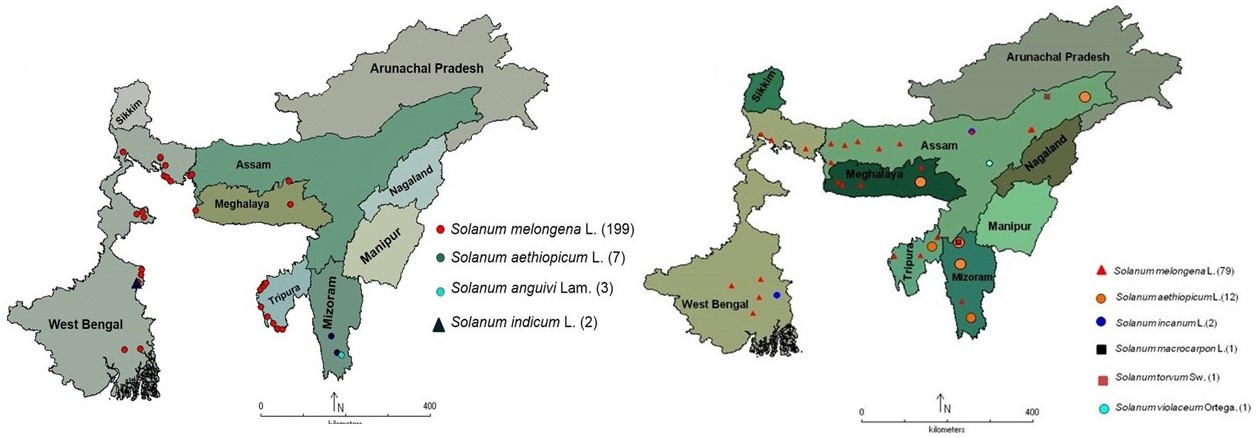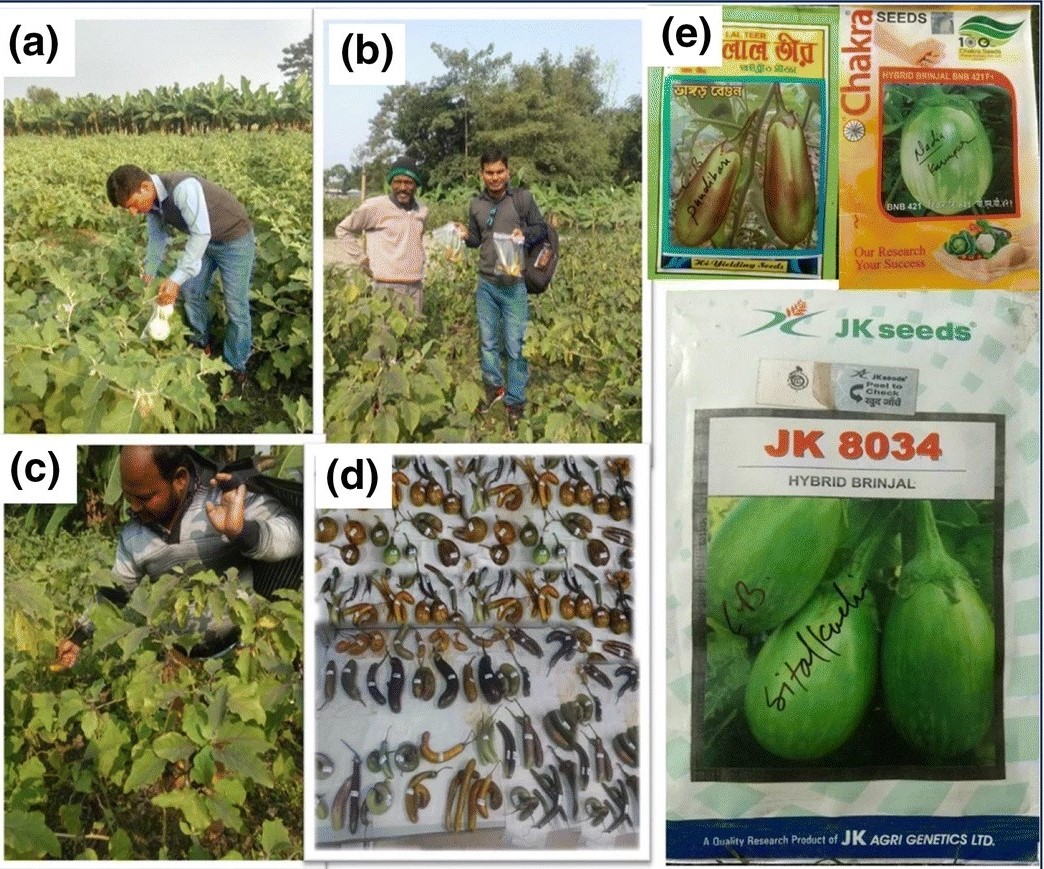ICAR-NBPGR studies find no Bt brinjal in genebank collections as well as samples collected from Bangladesh border areas
Date Posted: 10-09-2020
|
What is Bt Brinjal?
A genetically modified brinjal (Solanum melongena L.) developed to impart resistance against fruit and shoot borer, one of the most devastating insect pests. Bt Brinjal has the transgenic event EE1, which is a combination of cry1Ac gene of Bacillus thuringiensis, 35S promoter of Cauliflower Mosaic Virus and two marker genes neomycin phosphotransferaseII (nptII) and aminoglycoside-3′-adenyltransferase (aadA).
Is Bt Brinjal cultivated?
Bt Brinjal event EE1 was developed by Maharashtra Hybrid Seeds Company Pvt. Ltd. (Mahyco). Bt Brinjal was under field trials in India during 2004-2009. However, in 2010, an indefinite moratorium was placed on its commercial release. Therefore, Bt Brinjal is not available for commercial cultivation in India. In 2013, same Bt brinjal event EE1 was commercialized in Bangladesh.
What is the perceived risk for genebank collections?
India’s National Genebank housed at ICAR-National Bureau of Plant Genetic Resources (NBPGR), New Delhi (www.nbpgr.ernet.in), conserves more than 4,500 brinjal accessions including wild relatives of Solanum species. These accessions belong to various locations in India and have been collected over last four decades. Bangladesh shares porous borders with West Bengal and North Eastern states of India. Due to Bangladesh field trials of Bt brinjal conducted during 2005-2012 followed by its approval for cultivation in 2013, there are apprehensions of (i) transboundary movement of Bt brinjal and (ii) unintentional introgression (transfer of transgene(s)) and eventually reaching the genebank. |

Brinjal collection sites from five states adjoining Bangladesh (left) and collection sites of brinjal accessions from regions bordering Bangladesh (right)
|
ICAR-NBPGR carries out the diagnostics
ICAR-National Bureau of Plant Genetic Resources (NBPGR) has extensive facilities and expertise in the area of detection and identification of genetically modified organisms (GMOs). With an ISO/IEC 17025:2017 accredited laboratory for GM testing and two-decade long experience, it is also one of the National Referral laboratories designated under the Seeds Act. As an initiative to address this issue, systematic experiments were conducted to monitor adventitious presence of transgenes. In the year 2018, five states of India adjoining Bangladesh (Assam, Meghalaya, Mizoram, Tripura and West Bengal) were surveyed and as many as 211 brinjal samples (cultivated as well as wild relatives) were collected from 32 locations including farmers' fields, vegetable markets and local seed shops. In addition to these field samples, 96 brinjal accessions already conserved in the genebank collected during 2007-2016 from areas adjacent to Bangladesh were also tested. Singleplex and multiplex Polymerase Chain Reaction (PCR) as well as real time PCR assays were employed targeting various genetic elements of Bt Brinjal viz. cry1Ac transgene, CaMV 35S promoter, nptII and aadA marker genes. |

Collection of brinjal samples from farmer’s fields and subzi mandis (a-d) and seeds purchased from local seed shops (e)
|
No brinjal sample analyzed has adventitious presence of transgene(s)
The PCR and real-time PCR assays confirmed that the samples of brinjal, collected from diversity rich regions of India adjoining Bangladesh are free from Bt brinjal event EE1. The results of the diagnostic assays are already published and are available in public domain*.
The study is expected to fully dispel apprehensions, if any, of accidental conservation of transgenic brinjal sample or a genotype with possible introgression of a known transgenic event. The efforts will continue to keep the Indian genebank free from unintended conservation of transgenic plants.
*Kuwardadra, S.I., Bhatt, K.C., Paliwal, A. Sood, P., Malav, P.K., Sodhi K.K. & Randhawa, G.J. 2020. Monitoring adventitious presence of transgenes in brinjal (Solanum melongena L.) collections from the regions in India bordering Bangladesh: a case report. Genetic Resources and Crop Evolution 67, 1181–1192. https://doi.org/10.1007/s10722-020-00903-w
*Kuwardadra, S.I., Pandey, C.D., Paliwal A., Randhawa, G.J. 2020. Screening brinjal accessions conserved in the National Genebank collected from North Eastern states of India for adventitious presence of EE1 event. Indian Journal of Agricultural Sciences (In press). |
|
|
|
|
|
|
|
|
|